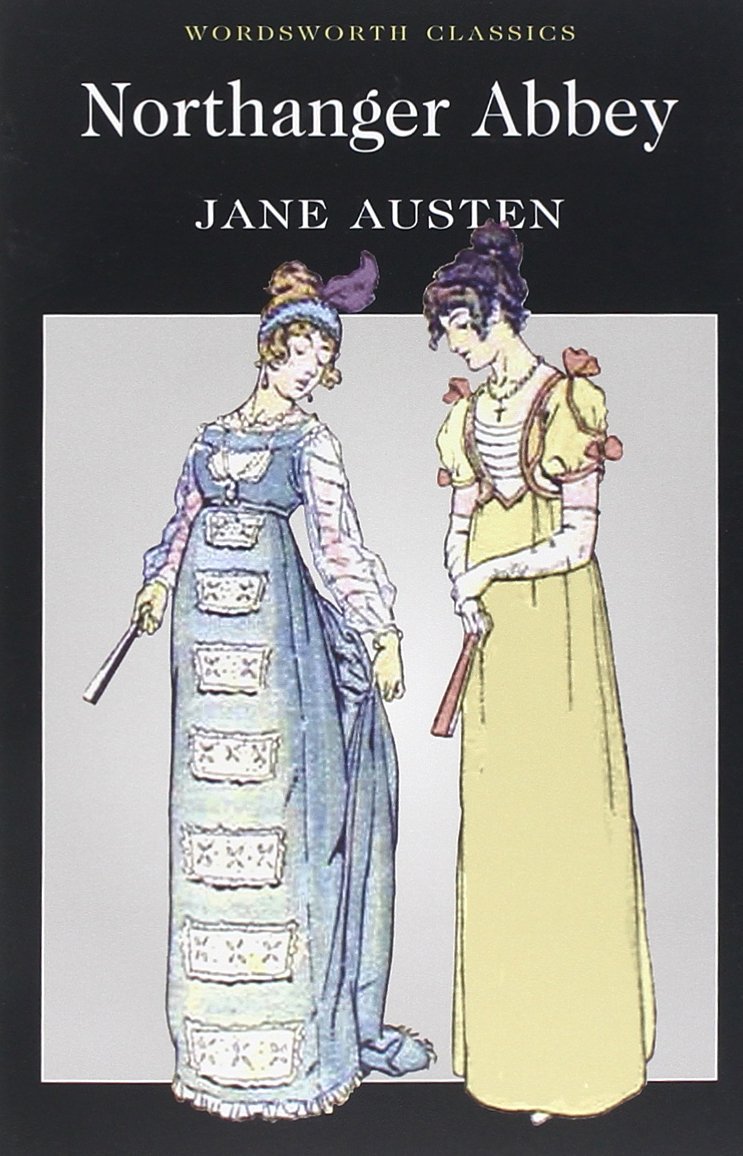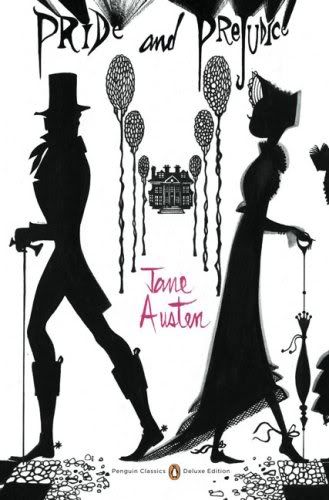 Despite being the first novel that Austen started writing, Northanger Abbey was only published posthumously. It's the second book by the much-acclaimed author that I have finished, and while I thought Pride & Prejudice was significantly more enjoyable, this book was quite readable as well.
I concede that readable isn't a very encouraging adjective for a book, and despite the fact that I've only read glowing reviews of this online, I've unfortunately not been swept away.
Despite being the first novel that Austen started writing, Northanger Abbey was only published posthumously. It's the second book by the much-acclaimed author that I have finished, and while I thought Pride & Prejudice was significantly more enjoyable, this book was quite readable as well.
I concede that readable isn't a very encouraging adjective for a book, and despite the fact that I've only read glowing reviews of this online, I've unfortunately not been swept away.
This book is meant to be a social satire on life in the nineteenth century, where money, marriage and dance partners were all people thought about. In that world, we meet Catherine Morland, a seventeen year old, naive and romantic and more than a little innocent; a most unsuspecting heroine, really, as Austen declares at the very outset:
No one who had ever seen Catherine Morland in her infancy, would have supposed her born to be a heroine.
She loves her gothic literature (who doesn't?) and is bestowed with the questionable gift of an overactive imagination. So, when her family friends take her with them to Bath for six weeks or so, to enjoy a holiday, go to some balls, and potentially, meet a dashing young man, she immediately befriends Isabella Thorpe, a fellow book lover.
[I]f a rainy morning deprived them of other enjoyments, they were still resolute in meeting in defiance of wet and dirt, and shut themselves up, to read novels together. Yes, novels; -- for I will not adopt that ungenerous and impolitic custom so common with novel-writers, of degrading by their contemptuous censure the very performances, to the number of which they are themselves adding -- joining with their greatest enemies in bestowing the harshest epithets on such works, and scarcely ever permitting them to be read by their own heroine, who, if she accidentally take up a novel, is sure to turn over its insipid pages with disgust. Alas! if the heroine of one novel be not patronized by the heroine of another, from whom can she expect protection and regard? I cannot approve of it. Let us leave it to the Reviewers to abuse such effusions of fancy at their leisure, and over every new novel to talk in threadbare strains of the trash with which the press now groans. [...]
So imagine her happiness when she realises that her own brother is quite fond of Ms. Thorpe, that he comes down to Bath to visit her. Their friendship grows thus, as does the romance between her brother and Isabella. But when she's introduced to Isabella's brother, who she finds quite boring compared to the indelible Mr. Henry Tilney, she finds herself in a bit of an awkward position. The brother and sister duo keep trying to manipulate her and her position with the Tilneys (i.e. Mr. Tilney and his sister), but at that point, we see Catherine standing up for what she believes in, and not giving in to peer pressure - the first time her character actually shines through.
There is banter between Mr. Tilney and our young innocent heroine, which is amusing, entertaining, and completely valid. For instance, I did actually chuckle while reading the below.
“Very true,” said Henry, “and this is a very nice day, and we are taking a very nice walk, and you are two very nice young ladies. Oh! It is a very nice word indeed! It does for everything. Originally perhaps it was applied only to express neatness, propriety, delicacy, or refinement – people were nice in their dress, in their sentiments, or their choice. But now every commendation on every subject is comprised in that one word.”
The Tilneys take to Catherine as well (after all, she is our heroine), and invite her to visit them at Northanger Abbey which is where the last third or so of the book takes place. Northanger Abbey is the kind of place "you read about", rich in Gothic ornaments. Getting carried away in the breathtaking Abbey, and blurring the lines between fact and fiction, Catherine jumps to a conclusion about events that have taken place in the days gone by at the Abbey, and when she's made aware of her naivety and stupidity, it's Henry's character's turn to shine through.
It's really bizarre how quickly people are jumping to conclusions in the book, and the number of judgment calls that go wrong. It's the shallowness and superficiality of the characters that are quite disturbing, and in a world where everyone has an end-game, Catherine's innocence and Henry's class (for lack of better words) stand out. The pompousness of some people, and the selfishness of others just leaves me feeling quite uncomfortable - it's like... seriously, life's too short! The sad thing is, even today, people are that shallow and selfish, and you just have to weed them out in order to find the people who are actually good.
The writing style, itself, is not a patch on Pride and Prejudice, but that's quite understandable, considering that this was the first book that Austen started. The dialog isn't as fluent or as romantic, and it didn't leave me all wistful - mostly a result of Catherine not being that strong a character, compared to Elizabeth Bennett. There's also large chunks where Austen seems to be addressing the reader, directly - possibly in a slight tongue-in-cheek voice. While a clever device, specially in a satire (which this was), it just didn't work for me, which was unfortunate. I guess once I read her other works, I should come back to this, and then evaluate it against those.
The next Austen on my list is Persuasion. A lot of Austen fans suggest that it's their favourite book by her, but considering how widely different I found this to Pride and Prejudice, I'm not quite sure as to what to expect with Persuasion. I guess that's part of the Austen charm. Which is your favourite Austen?
 Mee
Mee